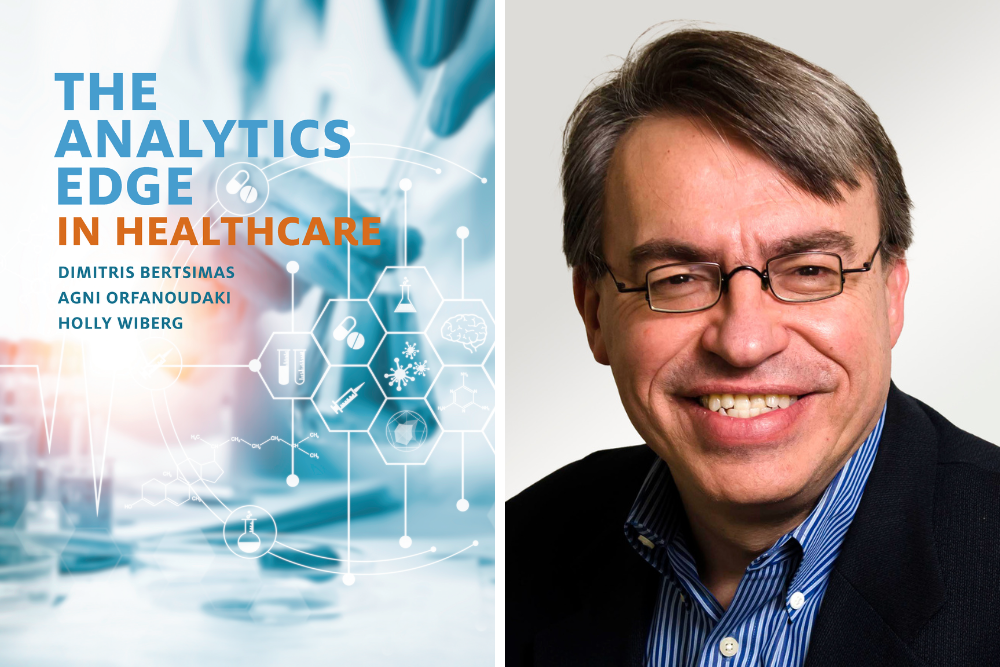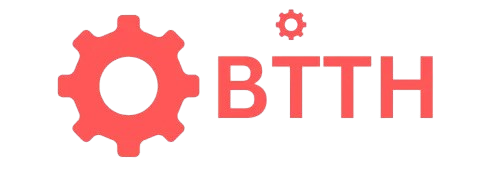
What if data could help predict a patient’s prognosis, streamline hospital operations, or optimize human resources in medicine? A book fresh off the shelves, “The Analytics Edge in Healthcare,” shows that this is already happening, and demonstrates how to scale it.
Authored by Dimitris Bertsimas, MIT’s vice provost for open learning, along with two of Bertsimas’ former students — Agni Orfanoudaki PhD ’21, associate professor of operations management at University of Oxford’s Saïd Business School, and Holly Wiberg PhD ’22, assistant professor of public policy and operations research at Carnegie Mellon University — the book provides a practical introduction to the field of health care analytics. With an emphasis on real-world applications, the first part of the book establishes technical foundations — spanning machine learning and optimization — while the second part of the book presents integrated case studies that cover various clinical specialties and problem types using descriptive, predictive, and prescriptive analytics.
Part of a broader series, “The Analytics Edge in Healthcare” demonstrates how to leverage data and models to make better decisions within the health care sector, while its predecessor, “The Analytics Edge,” dives into the science of using data to build models, improve decisions, and add value to institutions and individuals.
Bertsimas, who is also the associate dean of business analytics and the Boeing Leaders for Global Operations Professor of Management at the MIT Sloan School of Management, is the innovator behind 15.071 (The Analytics Edge), a course on MIT Open Learning’s MITx that has attracted hundreds of thousands of online learners and served as the inspiration behind the book series. Bertsimas took a break from research and his work at MIT Open Learning to discuss how the field of analytics is transforming the health care system and share some surprising ways analytics are already being used in hospitals.
Q: How is the field of analytics changing the way hospitals provide care and manage their operations?
A: As an academic, I’ve always aspired to educate, write publications, and utilize what we do in practice. Therefore, I founded Holistic Hospital Optimization (H20) with the goal of optimizing hospital operations with machine learning to improve patient care. We have developed a variety of tools at MIT and implemented them at hospitals around the world. For example, we manage patients’ length of stay and their deterioration indexes (a computerized tool that predicts a patient’s risk of clinical deterioration); we manage nurse optimization and how hospitals can allocate human resources appropriately; and we optimize blocks for surgeries. This is the beginning of a change where analytics and AI methods are now being utilized quite widely. My hope would be that this work and this book will accelerate the effect of using these tools.
Additionally, I have taught a nine-lecture course twice with Agni and Holly at the Hartford Hospital System, where I realized that these analytics methods — which are typically not taught in medical schools — can be demonstrated for health care practitioners, including physicians, nurses, and administrators. To have an impact, you need to have appropriate methods, implement them, and apply them, but you also need to educate people on how to use them. This links well with my role at Open Learning, where our objective is to educate learners globally. In fact, Open Learning is launching this fall Universal AI, a dynamic online learning experience that provides comprehensive knowledge on artificial intelligence, preparing a global audience of learners for employment in our rapidly evolving job market.
Q: What are some surprising ways analytics are being used in health care that most people wouldn’t expect?
A: Using analytics, we have reduced patients’ length of stay at Hartford Hospital from 5.67 days to five days. We have an algorithm that predicts patients’ probability of being released; therefore, doctors prioritize the patients with the highest probability, preparing them for discharge. This means that the hospital can treat far more patients, and the patients stay in the hospital less time.
Furthermore, when hospitals saw an increase in nurse turnover during the Covid-19 pandemic, we developed an analytics system that takes into account equity and fairness and decreases overtime costs, giving preferred slots to nurses and decreasing overall turnover substantially. These are just two examples; there are many others where an analytical perspective to health care and medicine has made a material difference.
Q: Looking ahead, how do you see artificial intelligence shaping the future of health care?
A: In a very significant way — we use machine learning to make better predictions, but generative AI can explain them. I already see a movement in that direction. It’s really the evolution of AI that made this possible, and it is exciting. It’s also important for the world, because of its capabilities to improve care and save lives.
For example, through our program at the Hartford Hospital System, we discovered that a patient was getting worse and predicted through analytics that they would get even worse. After our prediction, the doctors examined the patient more closely and discovered the patient had an early case of sepsis, a life-threatening condition in which the body responds improperly to an infection. If we hadn’t detected sepsis earlier, the patient might have died. This made an actual difference in saving a person’s life.
Q: If you had to describe “The Analytics Edge in Healthcare” in one or two words, what would they be, and why?
A: The book is a phased transition in health care because it is capable of affecting the health care sector in a way that has not been done before. The book really outlines my work in health care and its applications in the last decade.

